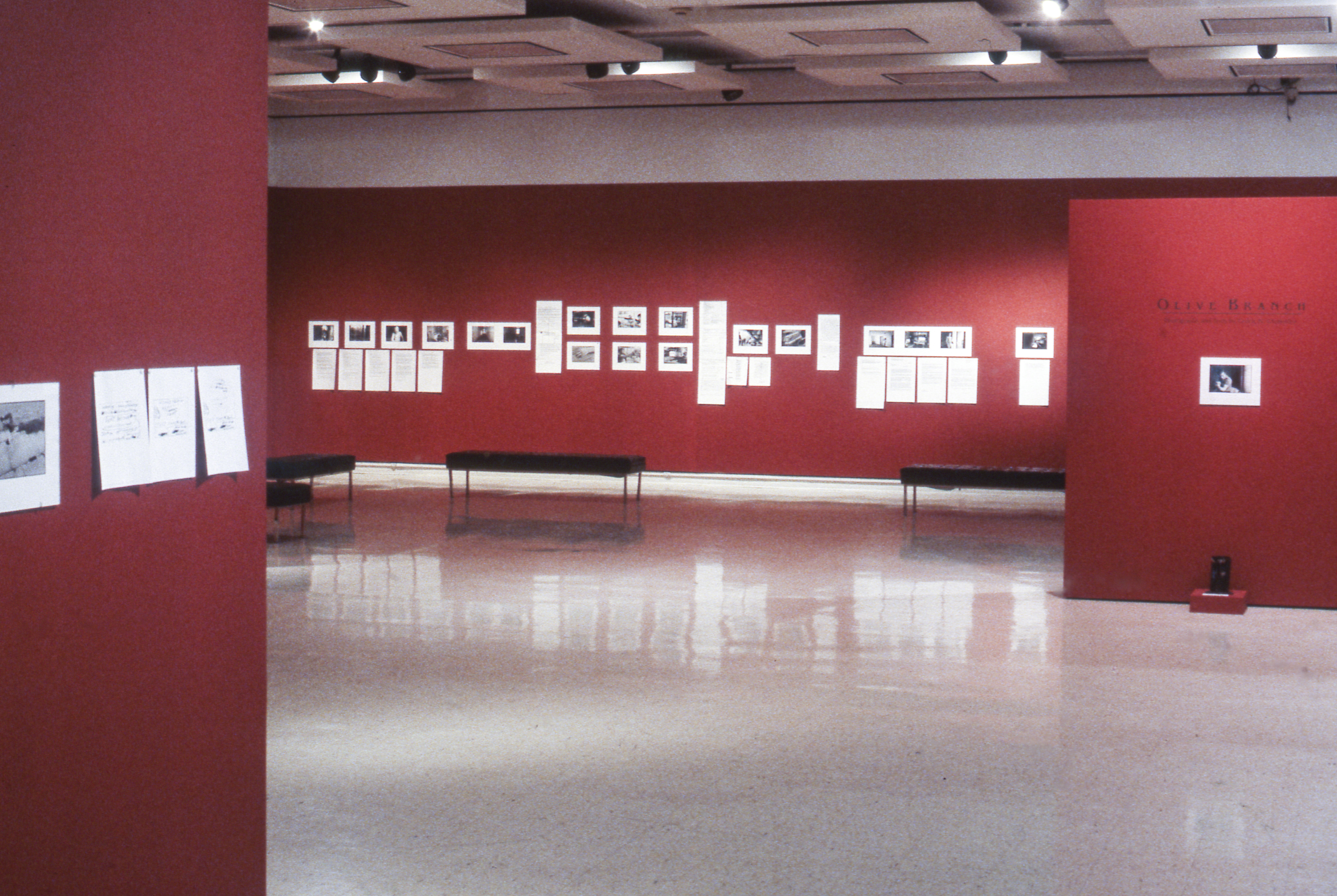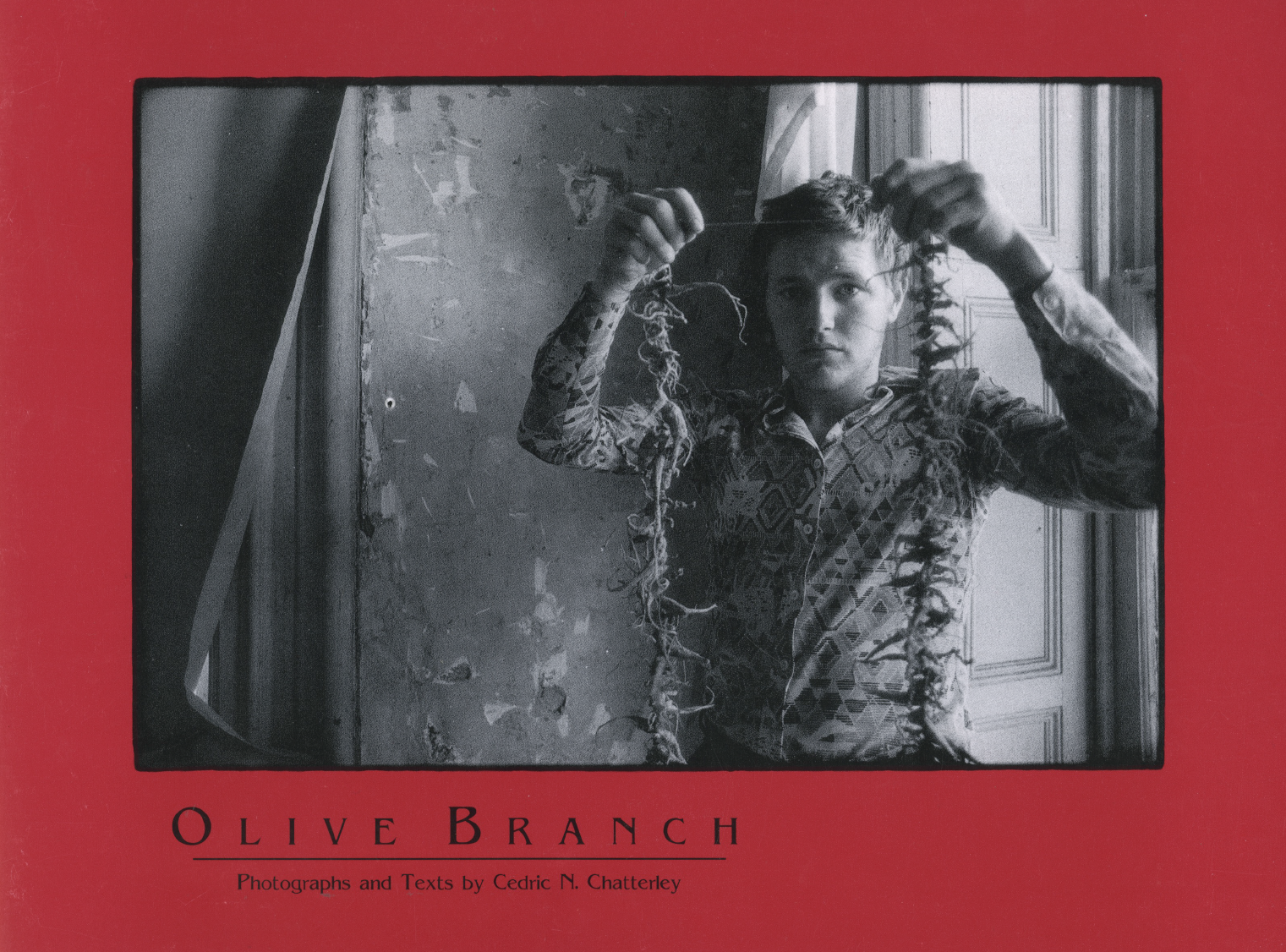
Olive Branch: Photographs and Texts by Cedric Chatterley
March 1 - April 10, 1994
Cedric Chatterley’s eight-year project, Olive Branch, explores the heritage of poverty in an American family, our problematic social welfare system, and the sadly ironic circumstances that Mark, the subject of this body of work, encounters as he attempts to achieve some level of economic and physical security. The unadorned installation of 11x14 inch black and white images is accompanied by texts which describe Mark’s experiences in his own words as well as commentary by doctors, family members, social workers, and Chatterley.
The poetry of Mark’s expressions combined with Chatterley’s vivid images render a tale that is dense with metaphor and socio-political implications. The fallacy that poverty is strictly an economic issue is shattered as Mark’s story unfolds. Chatterley’s half-ironic use of the title Olive Branch not only compares Mark’s dead-end hometown to the biblical story of promise, but also relates to the Bible as a narrative of western culture. Essentially Olive Branch is about the relationship between the photographer and his friend Mark and the pervasive effects of poverty on individuals and families.
Olive Branch, is literally and symbolically an “open book” dramatically displayed on dark red walls. According to some viewers, the installation has a theatric presence enveloping the viewer in Mark’s “performance,” opposed to the performer being surrounded by his audience. The end of the exhibition is left open, as are the possibilities for Mark to move towards achieving his goals.
Olive Branch communicates to audiences beyond the boundaries of the art and academic community, while also paying attention to contemporary issues in photography criticism and documentary practice. Through exposing his subjective position in Mark’s life Chatterley has created a context in which viewers can consider their own positions regarding the social hierarchy, ethics, and art.

